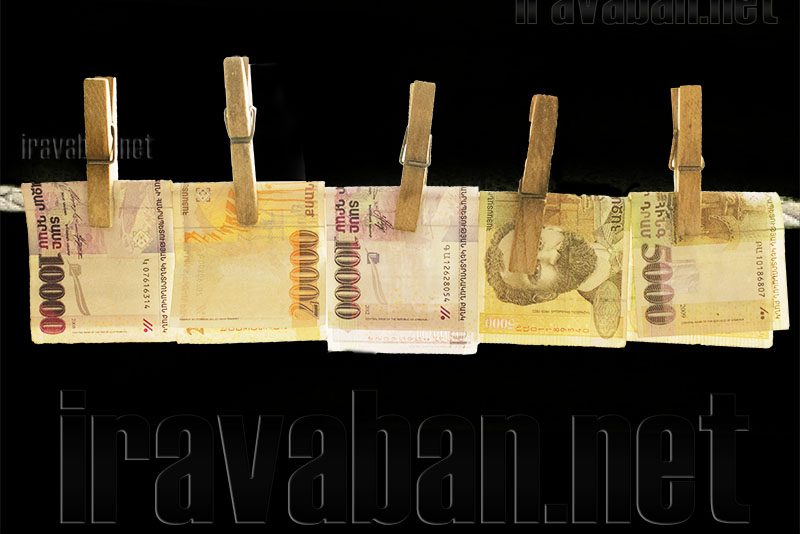A survey “The Role of Business in Combating Corruption: Armenian Reality” has been conducted in the scope of the “Armenia: Promoting Anti-Corruption Conduct and Reforms” implemented by the “Center for International Private Enterprise”, the Armenian Lawyers’ Association, the Corporate Governance Center and the Yerevan Chamber of Commerce and Industry, with financial support of National Endowment for Democracy.
The objective of the survey was:
- to reveal the attitude of the Armenian private sector toward corruption,
- raising awareness on anti-corruption compliance practices,
- the main measures to be taken and implemented by the private sector to ensure anti-corruption compliance.
The survey was conducted among Armenian companies in September-December, 2018. 188 organizations participated in the survey.
In order to clarify the perceptions of corruption, companies were asked to give their own definition of corruption. The overwhelming majority of respondents expressed their opinion on the issue, about 88%. Respondents in their definitions approach corruption from different angles. Therefore, an attempt has been made to group these definitions. It should also be noted that the presented grouping is conditional because it is possible to consider combinations according to the features of the definitions provided below. The inclusion of the definitions in this or that group is largely determined by response to the respondents’ responsiveness to a particular attribute. The definition groups are as follows:
Group 1. Definitions, in which the idea that corruption is an abuse of official position and focuses on the component of conflict of interest ran as a common thread.
- Corruption is the abuse of power in order to gain personal and/or group benefits and gain greater profits when it is intentionally (predetermined) incorporated in legislative and state systems.
- Corruption is a misuse of office to accomplish personal goals.
- Abuse of powers and rights by a person in the public or private sector, in on interest.
Group 2. Definitions that describe the phenomenon.
- Corruption is a crime, an evil.
- Is an unlawful action or inaction towards the state and people.
- An unacceptable act, etc.
Group 3: Definitions that view corruption from the perspective of the following manifestations:
- Abuse of official position, authority or ties, official forgery.
- The use of the official position, or the usurpation and waste of property of the company, etc.
Group 4. Definitions that reveal the essence of corruption from the perspective of its consequences.
- Breaks progress, business development.
- Encourages fraudulent and unfair competition.
- Operates against real business and destroys the country’s security bases.
- Corruption is the expression of a weakening of statehood and unfair competition.
- Corruption is the major obstacle to economic and social development around the world,
- Where there is corruption, companies are not inclined to invest because the costs of doing business are considerably higher.
- Corruption is a disease that destroys the bases of the state, is a disruption to the trust environment, and so on.
Group 5. Definitions where the company’s attitude towards corruption or the situation in the company.
- We are against corruption.
- There is no place for corruption in policy of our company.
- The company follows the principles of anti-corruption legislation and ethical behaviour in all kinds of business relations, regardless of the country in which the Company is engaged in its economic activities, etc.
Group 6. Emotional definitions.
- Corruption is the digression of someone else’s work, stealing from society,
- Corruption is weed, the only way to get rid of it is to eradicate corruption, the worst disgusting phenomenon, “No to Corruption!”
- Corruption is not an animal with horns and a tail. Corruption of the former government of the Republic of Armenia, etc.
The following definitions need to be especially emphasized as they view corruption from the point of view of sustainable development and highlight the importance of not only the economic but also social role of companies, including their adoption of anti-corruption stance.
- Corruption is the activity of companies exclusively pursuing economic interests.
- Corruption is the robbery of the working people, which hinders the development of future generations.
- In the current period, the fight against corruption is no less important for commercial organizations, which requires the introduction of additional restraint mechanisms through the internal acts of commercial organizations.
From 165 definitions only one observed corruption in positive light and gave the following formulation: Corruption is the fastest way to solve problems. And only one definition has a pessimistic tone: corruption will not be eradicated as it comes from the time immemorial, and no country has yet succeeded in getting rid of this evil.
This material has been prepared in the scope of the “Armenia: Promoting Anti-Corruption Conduct and Reforms” Project implemented by the “Centre for International Private Enterprise”, the “Armenian Lawyers’ Association” NGO, the “Corporate Governance Centre” NGO and the “Yerevan Chamber of Commerce and Industry” with financial support of the National Endowment for Democracy. The contents of this material are the sole responsibility of the “Armenian Lawyers’ Association” NGO and can in no way be taken to reflect the views of the National Endowment for Democracy and the European Union.















